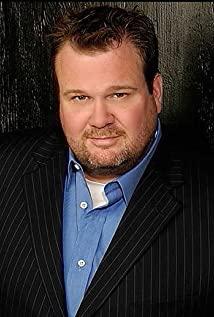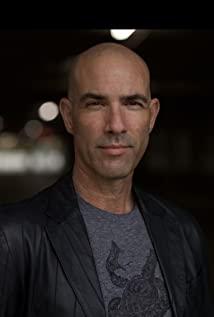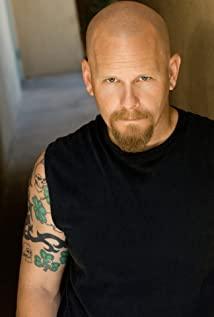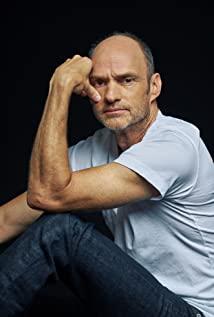The theme of "The Island" is very simple. It is nothing more than exploring the relationship between cloned humans and their "deity" or humans. However, the angle derived from this is very broad, such as the relationship between technology and ethics. Does the development of technology need to consider morality? Earlier on, I asked "a thief" about innovation. I asked: For companies like Tencent, although their so-called innovation (cottage) is "reasonable" (meaning that it emphasizes function rather than pure innovation), it is reasonable. Does it mean not shameless? He replied: The essence of innovation should be de-moralized. Regarding his remarks, I will not comment for the time being. For example, we can also explore what is the purpose of technological development? Is it for improving people's living standards, improving the living environment of human beings, or for technology itself? If it is to improve the lives of human beings, what kind of technology is really applicable and reasonable?
If you meet another self
"The island" mainly describes an "underground cloning empire" that sells human organs. This underground organization uses high technology to cultivate clones in order to sell their organs in exchange for economic benefits. As long as the purchaser pays enough money, he can cultivate a clone for himself in exchange for a longer lifespan. These clones exist only to satisfy their "deity"'s desire for survival. In short, they have no value in themselves. Now comes the problem. If the purpose of these clones being created is to serve the life of their "deity", then their life and death should be insignificant, as the evil doctor said: they are just "products", and Not human. For example, the protagonist Lincoln. The reason why 6E was created is that his "principal" liver cirrhosis is in urgent need of a new liver, and his existence is of little value to other people. Using cloning technology to provide humans with replaceable human organs is a good thing, but the question is, should cloned organs and complete clones be treated the same? If it's just organ cultivation, then we don't seem to need to consider moral issues. Because these organs have no consciousness, no emotions, they are purely a product. Now we look at this from an interesting perspective. If cloned people are also unaware and emotionless, their only purpose is to provide their own organs when their "deity" needs them. So, can we say that there is no essential difference between cloning organs and cloning humans? If there is no objection to this statement, then what the doctor in "The island" said is of course acceptable. The removal of cloned human organs is just a "recycled product", and unqualified products are directly destroyed. The Harvard University Open Course "Justice——What the right thing to do" also talks about similar philosophical issues. For example, there are now five patients in the emergency room of a hospital who are injured in an accident and need to replace their organs. The organs they need are different from each other. At this time, a healthy person is coming for the physical examination. If you were a doctor, would you kill him and take out his organs to save the five people? How would you think about it at this time? Obviously, if we measure it by quantity, the value of 5 lives is significantly higher than that of 1 person. But is such behavior morally permitted? Going back to the movie itself, if the clones themselves are conscious, should they also be regarded as "people" rather than "products"? Since they are human, they should have the right to choose their own life and death, to choose how they want to live. However, since they were created for the purpose of serving their "deity", how do we measure these two values? Obviously, the lives of cloned humans are provided by their "deity". Does this mean that the latter also have the right to take it back?
Obviously, Lincoln E6 does not agree with this statement. He has personal consciousness, personal emotions, and even endless curiosity and thirst for knowledge, as he said: I want more. So he and Jordan D2 broke free from the shackles of the clone empire and lived like ordinary people in this world. At the end of the movie, the two of them rescued the other clones and let them go to the real world. The film came to an abrupt end. The screenwriter seemed to intend to leave a space for the audience to imagine. It may be that he didn't dare to think about it, or it may be that his imagination has come to an end. However, as far as I am concerned, I am not optimistic that clones can be integrated into the life of this world. And here, I want to raise another interesting question, if you are the "deity" of a cloned human and your life is at stake, and you urgently need to replace your organs to continue your life, will you choose to end your cloned human life? Woolen cloth? And if you are a clone, would you kill your "principal deity" to pray for yourself to live? As Lincoln E6 said: The only thing I can guarantee is that in order to survive, people will do everything. I just want to live, no matter what the price is.
If time equals money
"Time Planning Bureau" is a very interesting movie. In this movie, time is indeed equal to money. Everything about people needs to be traded through time. It is precisely because of this that rich people can exchange money for eternal life, while poor people can only continue to consume their lives in exchange for poor income, and then live on. At the end of the movie, the protagonist robbed the bank of time resources, allowing every ordinary person to get a considerable amount of time. I’m very curious that if one day everything in the world needs to be traded through time, that is to say, we can also exchange time through time, exchange life through time, or even enslav life through time. So what is our life for? Is it to provide time for other people's lives? Or is it to gain time by enslaving others' lives? To some extent, the time and money mentioned in this movie are not entirely a concept, and the analogy of resources seems more appropriate. If a person has sufficient resources, such as the heroine's father, then he is indeed capable of enslaving and even ruling a considerable number of people, because he is in charge of the life and death of these people, indeed, he can even know In which second they will die, he can even directly determine when a certain person will be born and when he will die.
In this movie, there is also an interesting plot. After all people reach a certain age, their appearance and limbs will not get old, but their physical functions and psychology will become tired and decayed over time. In other words, anyone can be "not old", and the rich can live forever. At this time, the chubby girl sitting next to you is probably already an old woman, but you are deceived because of her appearance, and you even want to invite her to dance. What an interesting picture this should be. On the other hand, if we can obtain eternal life through resources, it will necessarily mean that some other people have paid the price of their lives for your eternal life. For example, if the resources are divided equally, everyone can live to 70 years old, and if you want to live to 140 years old, you must deprive others of the resources to continue your own life, in other words, you kill invisibly Another person. Because the protagonist sees through this point, he aggressively plunders the bank's time resources in an attempt to give everyone a considerable amount of time. In fact, this kind of thinking is nothing new, but nothing more than the so-called egalitarianism. The question is, should his approach be allowed? This is in terms of law. And taking a step back, does his approach conform to the code of ethics? Similarly, in the Harvard public class "Justice", Michael Sandel also mentioned such a similar problem. Should the rich be taxed heavily or asked to donate a considerable amount of money to help the poor? Some agree, while others oppose. Those who agree believe that the success of rich people is based on cooperation with other people, so they should also give back to society; but those who oppose believe that this is their private property. Forcing them to donate free of charge or imposing heavy taxes on them is tantamount to snatching, which has obviously violated their personal rights. If one day, time itself is the value symbol of all exchange activities, can we support the protagonist's approach for granted? The screenwriter seemed to agree, but I was on the sidelines.
If the development of science and technology is to make us perish
Many people say that the performance of "The Matrix" is very common, but the content is very elite. So, how elite are there? The movie shows us a future world, a world where humans and machines struggle. Originally, the purpose of machines was to reduce human labor, improve human living environment, and accelerate human work efficiency. However, if one day, machines will also think, are they still willing to serve mankind unconditionally? Just like Lincoln E6, do they also want to obtain equal status with humans?
From the cloning of humans to time resources, to the struggle between humans and machines, this is an interesting process. The original intention of this arrangement is to point to the root cause. In a world where technology, people’s lives and ethics, what are they like? What about the relationship? How can we achieve a balance? Obviously, even in the world of If, it is unlikely that there will be a savior like Neo, so is the last scene of the movie just a utopia? Regarding this, I haven't come up with a clear idea yet, so I had to put it aside first, but this is a question worth thinking about.
View more about The Island reviews











